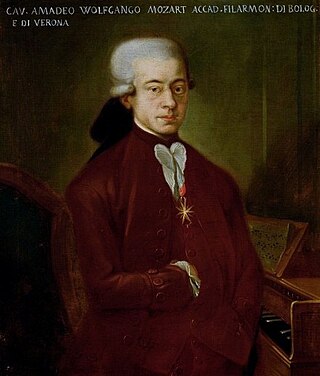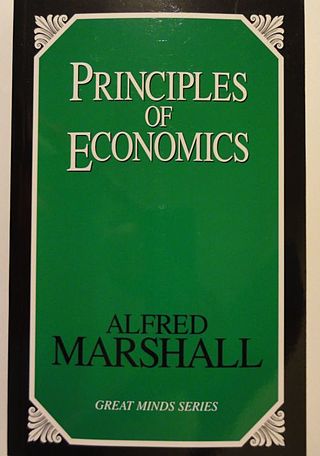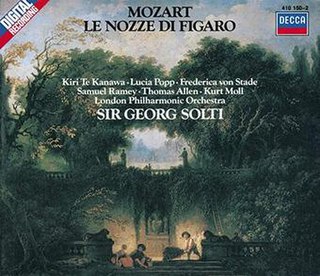
CITES is a multilateral treaty to protect endangered plants and animals from the threats of international trade. It was drafted as a result of a resolution adopted in 1963 at a meeting of members of the International Union for Conservation of Nature (IUCN). The convention was opened for signature in 1973 and CITES entered into force on 1 July 1975.

Giovanni Pierluigi da Palestrina was an Italian composer of late Renaissance music. The central representative of the Roman School, with Orlande de Lassus and Tomás Luis de Victoria, Palestrina is considered the leading composer of late 16th-century Europe.

The Loeb Classical Library is a series of books originally published by Heinemann in London, but is currently published by Harvard University Press. The library contains important works of ancient Greek and Latin literature designed to make the text accessible to the broadest possible audience by presenting the original Greek or Latin text on each left-hand page, and a fairly literal translation on the facing page. The General Editor is Jeffrey Henderson, holder of the William Goodwin Aurelio Professorship of Greek Language and Literature at Boston University.

Die Schuldigkeit des ersten Gebots, K. 35, is a sacred musical play composed by Wolfgang Amadeus Mozart in 1767 when he was 11 years old. It is Mozart's first opera or, more specifically, sacred drama, as is suggested by the name. The libretto is now attributed to Ignatz Anton von Weiser, although Johann Adam Wieland or Jakob Anton Marianus Wimmer had been suggested earlier. Only the first part of the opera was composed by Mozart; the second and third parts were contributed by Michael Haydn and Anton Cajetan Adlgasser respectively. However, these other two parts have not survived. Part 1 of the opera was first performed on March 12, 1767, in the Knight's Hall of the Palace of the Archbishop, the Salzburg Residenz. Part 2 was performed on March 19, and part 3 on March 26.

Ascanio in Alba, K. 111, is a pastoral opera in two parts by Wolfgang Amadeus Mozart to an Italian libretto by Giuseppe Parini. It was commissioned by the Empress Maria Theresa for the wedding of her son, Archduke Ferdinand Karl, to Maria Beatrice d'Este on 15 October 1771.

The Italian People's Party was a Christian-democratic, centrist and Christian-leftist political party in Italy. The party was a member of the European People's Party (EPP).
The community of Chinese people in Italy has grown rapidly in the past ten years. Official statistics indicate there are at least 330,495 Chinese citizens in Italy, although these figures do not account for former Chinese citizens who have acquired Italian nationality or Italian-born people of Chinese descent.

Principles of Economics is a leading political economy or economics textbook of Alfred Marshall (1842–1924), first published in 1890. It was the standard text for generations of economics students. Called his magnum opus, it ran to eight editions by 1920. A ninth (variorum) edition was published in 1961, edited in 2 volumes by C. W. Guillebaud.

The Complete Short Prose 1929–1989 is a collection which includes all of Samuel Beckett's works written in prose, with the exception of his novels, novellas from Nohow On, and More Pricks Than Kicks which is considered "as much a novel as a collection of stories". The book was edited by S. E. Gontarski and published by Grove Press in 1995.

The Symphony No. 7 in C major, Hoboken I/7, is a symphony by Joseph Haydn, sometimes called "Le midi", meaning "The Noon."

The dobla, including dobla castellana (excelente), gran dobla, dobla de la Banda, dobla cruzada, dobla alfonsi and dobla almohade, was the name of various Iberian gold coins between the 11th and 16th centuries, ranging in value from 2-870 maravedis, depending on the year. The name originated as the "double maravedi", a term used by Castilians for the Muslim dinar, when the maravedí was re-valued as equivalent to the Muslim half-dinar, or masmudina, by Ferdinand III. However, years later, the dobla became various new coins, and at times, a dobla was the same as the newer coins enrique or castellano. In general, a dobla was a valuable gold coin, while the maravedi was de-valued into silver or rarely copper forms. In the 16th century, the dobla was replaced by the ducado, then by the escudo as the standard gold coin of Spain.
Sub olea pacis et palma virtutis conspicua orbi regia Bohemiae Corona: Melodrama de Sancto Wenceslao , ZWV 175, is an extensive composition, written in 1723 by Czech baroque composer Jan Dismas Zelenka.
Il Serpente di Bronzo, ZWV 61 is a sacred cantata composed by the Czech composer Jan Dismas Zelenka (1679–1745).

Pierluigi Castellano is an Italian musician, composer and journalist.

Le nozze di Figaro is a 168-minute studio recording of Wolfgang Amadeus Mozart's opera of the same name, performed by a cast of singers headed by Sir Thomas Allen, Jane Berbié, Yvonne Kenny, Philip Langridge, Kurt Moll, Lucia Popp, Samuel Ramey, Frederica von Stade, Robert Tear and Dame Kiri Te Kanawa with the London Philharmonic Orchestra under the direction of Sir Georg Solti. It was released by Decca in 1982.

Così fan tutte is a 178-minute studio album of Wolfgang Amadeus Mozart's opera, performed by Jules Bastin, Philippe Huttenlocher, Kiri Te Kanawa, David Rendall, Frederica von Stade and Teresa Stratas with the Choeurs de l'Opéra du Rhin and the Strasbourg Philharmonic Orchestra under the direction of Alain Lombard. It was released in 1978.

Il mondo della luna is a 211-minute studio album of Joseph Haydn's opera, performed by Luigi Alva, Arleen Augér, Anthony Rolfe Johnson, Edith Mathis, Frederica von Stade, Lucia Valentini Terrani and Domenico Trimarchi with the Chœurs de la Radio Suisse Romande and the Orchestre de Chambre de Lausanne under the direction of Antal Doráti. It was released on LP in 1978 and on CD in 1992. Its CD version included nine bonus arias of Haydn's, mostly written to be inserted into other composers' works, performed by Mathis and the Orchestre de Chambre de Lausanne under the direction of Armin Jordan.
I penitenti al sepolcro del redentore, ZWV 63, is an oratorio by Jan Dismas Zelenka, commissioned and first composed for a performance on Good Friday, March 30 1736, for his employer Augustus III, in Dresden. The work departing from the usual canon of a setting of the text of one of the Gospels, being instead a poem focusing on the meaning of Christ's sacrifice, is unusual in this aspect.













